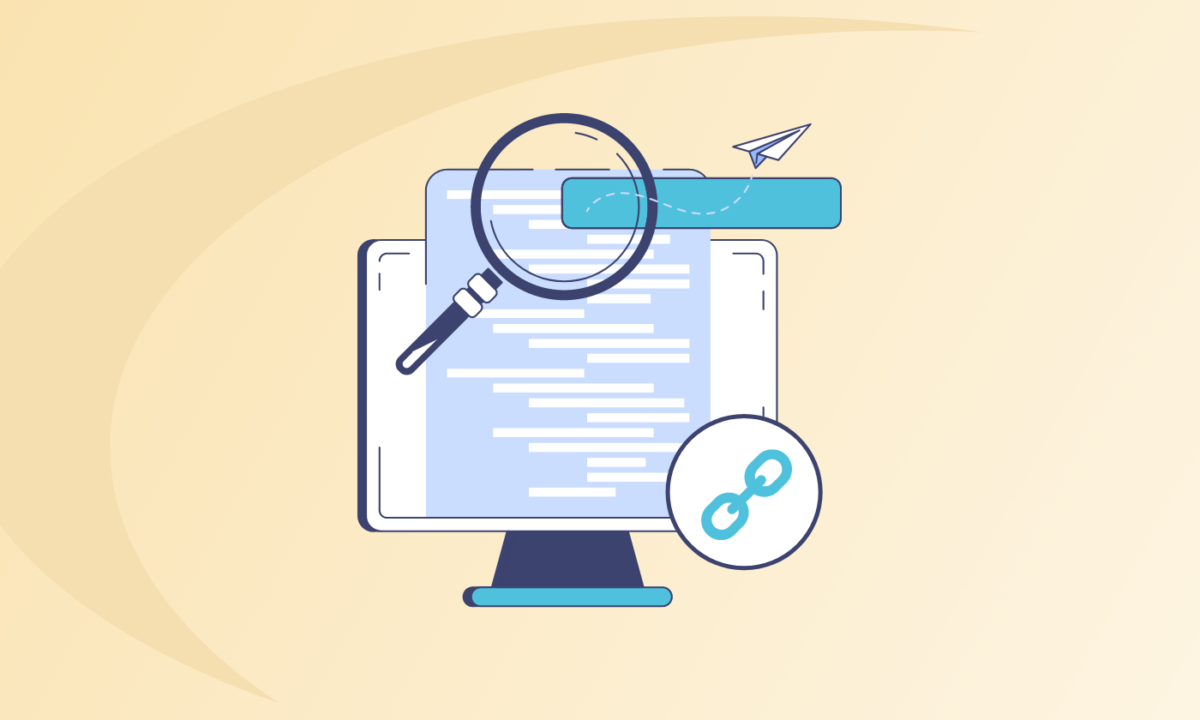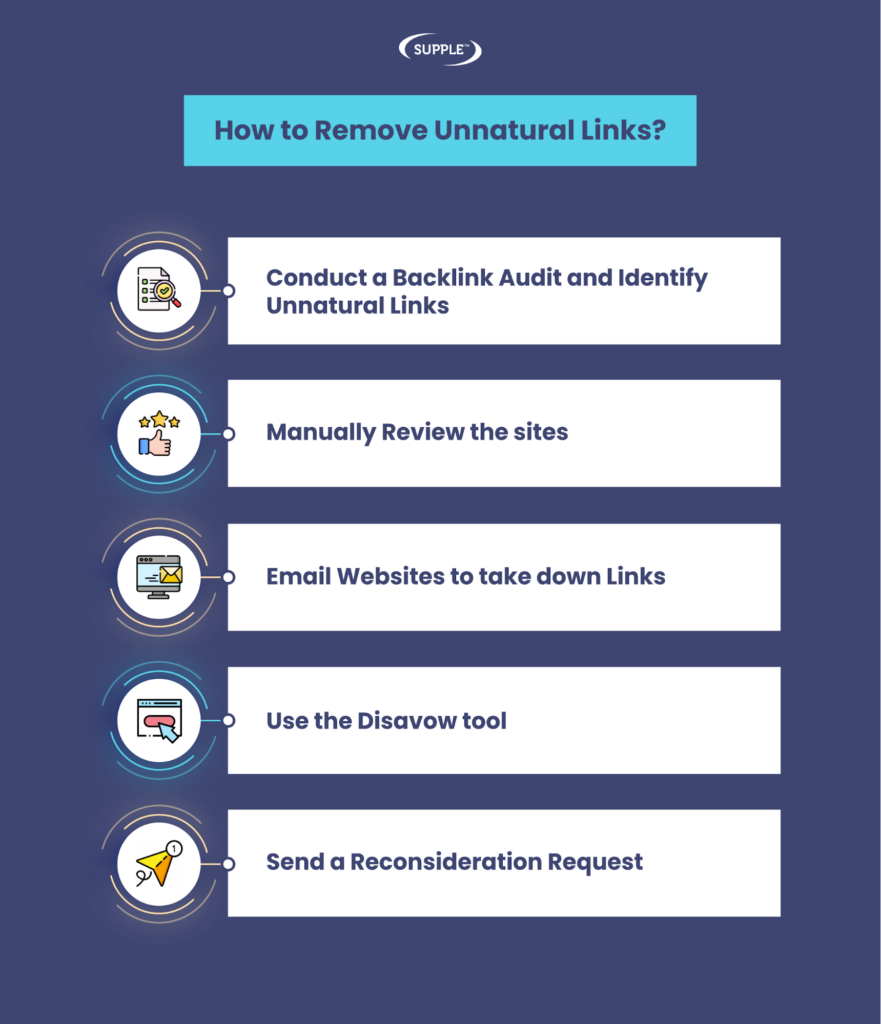How Unnatural Links Impact Your Website’s SEO Performance and How to Fix it?

If you’re leveraging unnatural links to improve your search engine ranking, you’re in a toxic relationship with your SEO — it doesn’t last long, and nothing good comes from it.
And while you know unnatural links are bad, there’s sometimes a thin line between the links that Google discourages, and links that straight-up lead to a manual action from Google.
And you don’t want to land up in any of these situations.
Let’s check out why unnatural links can gravely impact your SEO and the ways to recover from Google penalties resulting from the same.
What are Unnatural Links?
When links are named ‘unnatural’, you know it can’t mean anything good.
According to Google, any links that intend to manipulate the PageRank algorithm or a site’s ranking in Google searches are considered a part of a link scheme and a violation of Google’s Webmaster Guidelines.
These types of links are often built by spammers or purchased through link schemes and they threaten the integrity of the Search Engine Result Pages.
You may be wondering, how does Google even identify unnatural links? Besides, link-building is something that most SEO agencies offer as a service and most brands practice it as a means to improve their online visibility. How does this time and effort nullify a link and term it as unnatural?
The point is, if you’re practising link-building, you know that you can only benefit from it if the link offers some value to the reader. For example, if you’re a security company in Sydney but numerous links in your profile are related to fashion or healthcare, then you know they’re not placed there out of context but rather for monetary gain or a shortcut to high rank.
That’s how the search engines also decipher between the good and the bad links. Typically, unnatural links are those that
- Aren’t placed by the website owner
- Exist only to increase the linking portfolio of a website
- Are created using spammy methods
- Aren’t organic and are purchased
- Don’t comply with the context of the page or article
- Don’t offer any value to the reader
Types of Unnatural Links
- Injected Links
You can attract a Google penalty if you’re using automated software to place links across the web. The software injects links within the publisher’s content without permission from the editorial team. These types of links are the first to get a manual penalty from Google and are as unnatural as a link can get. If you discover any such links you can add them to the disavow list. More on that later.
- Sitewide Links
Sitewide links can appear as a good shortcut to SEO efforts. But in hindsight, they hardly do anything to elevate your link-building strategies. These links in sections can appear in the footer and are paced by the website developer or designer.
The intention here is to garner numerous backlinks from an eCommerce or a WordPress website that has hundreds or thousands of pages. However, they immediately come across as spammy because getting many backlinks from a single website with a single anchor text doesn’t add any value to your backlinking efforts.
- Syndicated Content
These include the links that you place in press releases. While press releases aren’t a problem, stuffing them with keywords and links is. It just reflects that you’re writing the press release for the search engine and not the user.
- Link Exchanges
Link exchanges are done based on agreements between two parties to link to each other. And yes, they’re quite common and a legitimate way to build your backlink profile. However, it is only appropriate when these two parties are a part of the same industry or have related content that fits the context.
- Blog and Forum Comments
This type of unnatural link is generated when websites put their links on blogs and forum comments. But since then, a lot of people started spamming the comment section and over-optimising them with keywords and different types of backlinks that manipulated the search ranking system. It has now become a redundant practice as Google largely ignores them due to its lack of viability.
- Low-quality Directories
While there are still numerous sites that are relevant and helpful to users in finding their nearest small business or product directories and features, there are others that don’t offer any value.
For example, it is advisable and even necessary for many local businesses to list their business on Yelp, Google Business Profile, and Reddit. But there are other spammy sites where if your link is listed, it is immediately listed as an unnatural link.
- Link Schemes
Lick schemes (also known as Private Blog Networks) are some of the most common types of unnatural links where you dedicate a website for the sole purpose of building links.
Also known as link farms or private blog networks (PBNs), link schemes are a link-building tactic that involves someone dedicating a website to the sole purpose of building links.
This is done to elevate a site’s SEO but they offer little or no benefits to the user as site owners hardly consider context while backlinking. Through a linking scheme, they manipulate search engine ranking which can result in Google penalties.
Why are Unnatural Links Bad for Website SEO?
If unnatural links cannot provide any value to the reader, they cannot prove your credibility to the search engine either.
Besides it belittles the effort of all the sites that practise organic link-building methods and strive for long-term success rather than short-term visibility.
- Negative Impact on Rankings
Google’s algorithm places significant importance on the quality of the link while deciding its ranking. If your site is full of links that are there just for keyword stuffing or placed completely out of context, your site ranking can significantly drop or even be entirely removed from Google’s index. A manual action by Google is triggered after two or three unnatural links.
And once you receive the penalty, it immediately results in a lower ranking. You can suddenly disappear from search rankings for valuable keywords associated with your content and even face difficulties in getting new content indexed by Google.
- Decreased Traffic
Subsequently, a lower ranking means a huge drop in organic website traffic. Regardless of the authority you’ve built or have hundreds of visitors every day, Google doesn’t discriminate when it spots an unnatural or spammy link associated with your website.
It’s also important to note that Google doesn’t just penalise a particular page or a section of your website where the unnatural links are hosted. The entire website will likely be penalised. Even pages with organic links and high traffic can suffer and you’ll lose traffic to your full site.
- Reputation Damage
SEO is a long game. You spend so much time securing organic links, optimising your website, and building a legitimate presence on search engines. Slowly, you build domain authority and increase the trustworthiness and credibility of your website.
If you go down the path of black hat SEO practices and link schemes, all the reputation you build can crumble — both for the search engines and the site visitors. It can take a lot of time to build that reputation back and gain credibility back on search engines.
- Manual Penalties from Google
For search engines, unnatural links fall into blat-hat SEO practices — practices that go against the search engine guidelines to improve a site’s ranking of SERPs. They result in manual penalties by Google, which can ultimately result in ranking and loss of website traffic and revenue.
Google does offer you the benefit of the doubt and doesn’t penalise till 2-3 links. But once you do receive it, you’ll need to take considerable steps before you can send a reconsideration request to Google to remove the unnatural links penalty. It is an added task that you don’t want on your plate.
How to Remove Unnatural Links?
Now that we know the types of backlinks and the extent to which they can dismiss the overall SEO efforts, let’s check out how to remove unnatural links.

- Conduct a Backlink Audit and Identify Unnatural Links
Most unnatural links to your websites come in a disguised form where you wouldn’t even realise that your website is under penalty scrutiny. You can only find irregularities if you consistently perform a backlink audit.
The first sign in determining if you’ve received an unnatural links penalty is an alarming drop in ranking and traffic drop. With a manual penalty, you can easily identify one in your Google Webmasters Tool but if it’s an algorithmic change, you’d have to assess your backlinking profile.
You can conduct a backlink audit using SEO tools like Semrush or Ahrefs. Once you’ve received an email about an unnatural links penalty, check for links from directories and link farms, links that you received in exchange for payment, and through automated backlink service.
SEO audit tools showcase all the links pointing to your website. SEMrush, for example, categorises unnatural links as toxic links. What you can do is filter the links based on their domain ratings, the traffic they generate and so on. Based on the data, check each site that may indicate the source of an unnatural link.
- Manually Review the sites
You’ll need to manually go through the links if you don’t have a link checker. On Semrush you have a toxic link score and any link that has a score above 60 is toxic. You can check unnatural link sources through your Google Search Console. You can do this for all unnatural inbound links. For outbound links, you’ll need to thoroughly audit your site and pay attention to links that can manipulate search rankings.
To review the links manually, look for the type of links that we discussed above. See if you can pick up patterns or figure out a spammy URL. If you do discover it, there are chances of a link spam coming your way. Categorise your links into
- Legitimate and Good Links
- Paid Links
- Spammy Links
This makes it easier for you to take action for each link where you can either contact sites to remove your link or add them to your disavow list.
- Email Websites to take down Links
The first step towards the removal of unnatural links is to contact the respective webmasters with your link and request them to remove your links. This is a step Google urges the website to follow before adding the links to the Disavow file and making a reconsideration request to Google to remove the unnatural links penalty.
While you communicate with the webmasters, keep a record as you might need proof while sending reconsideration requests to Google. When you contact the webmasters, remember to be polite and add all the details such as where the backlink is located, that you want to remove it, and why want them to remove it. Prepare a detailed email that the recipient can understand and act upon.
- Use the Disavow tool
If you don’t get a revert and the required action is not taken by the websites, you can disavow the link. To disavow a link means to get rid of all the harmful links to your website and it is the last resort to remove the link. When you’re taking this action, you’re asking Google to not consider these links while evaluating your website.
Most SEO tools will allow you to create a disavow file so you can upload the same to Google. Simply select all the potentially unnatural links and select the option to disavow domains. Your SEO tool will download these links as a text file. You can upload this file here at Google Webmaster Disavow Links site.
- Send a Reconsideration Request
Once you submit the disavow tool, send the reconsideration request to Google via the Google Search Console. While submitting a reconsideration request, you need to include the following details
- The spam issue you encountered
- The actions you took to resolve the issue (like the emails sent to webmasters for link removal)
- The steps you took to ensure Google’s guidelines (like submitting a disavow file to Google Search Console for the links you cannot remove)
- Documentation and emails for proof
Seeing a positive result after the reconsideration depends on when you get a reply. For example, a company removed more than 1000 unnatural links to remove a penalty and saw their results merely 3 weeks after using the disavow tool.
Remove Unnatural Links and Improve your SEO Health with Supple
Unnatural links can degrade all your SEO efforts. For a brand that strives for organic SEO stability, such links can have a drastic impact on your months of hard work and overall online traffic and revenue.
It is best to have a reputable SEO agency that can handle your linking strategies for you so that such situations don’t arise in the first place. But even if they inevitably do, you can have a reliable solution. Contact us to know how Supple can set up a proper plan of execution to set your SEO back on track for organic success.
DIGITAL MARKETING FOR ALL OF AUSTRALIA
- SEO AgencyMelbourne
- SEO AgencySydney
- SEO AgencyBrisbane
- SEO AgencyAdelaide
- SEO AgencyPerth
- SEO AgencyCanberra
- SEO AgencyHobart
- SEO AgencyDarwin
- SEO AgencyGold Coast
- We work with all businesses across Australia



